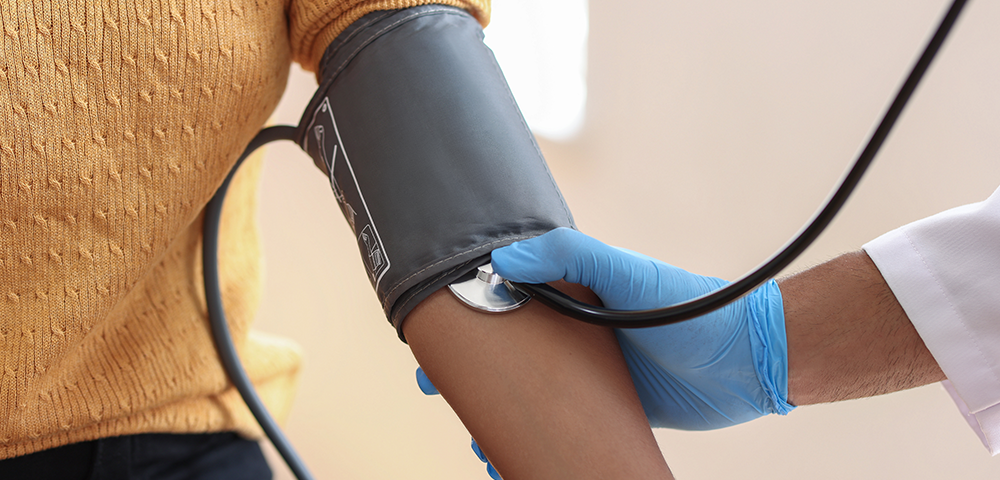by Walaa Ayoub, MD, Lexington Clinic Endocrinology
Diabetes affects the way your body processes sugar. In non-diabetic patients, the body uses insulin to help move sugar from the bloodstream to the cells. Insulin is a hormone produced by the pancreas. But in patients with diabetes, this process doesn’t work as it should, which leads to blood with higher levels of sugar than it should have. There are two kinds of diabetes: type 1 and type 2, as well as prediabetes. Type 2 diabetes is preventable, provided lifestyle changes are made during the prediabetes stage.
Type 1 diabetes is an autoimmune disease. It is usually diagnosed at a younger age, but it can develop in adulthood. The disease causes the immune system to prevent the pancreas from making enough insulin. Insulin helps your body regulate glucose (sugar) in your blood. Without insulin, glucose levels in the blood get too high, which can lead to heart, kidney, and eye diseases. Treatment of type 1 diabetes usually involves insulin management or other medications, along with monitoring of blood sugar levels.
Type 2 diabetes usually develops in adulthood. Like type 1 diabetes, type 2 diabetes affects your body’s ability to create insulin and properly regulate your blood glucose. However, type 2 diabetes is not an autoimmune disease. Treatment for type 2 diabetes involves dietary changes and exercise. However, some medications may be necessary. With treatment and lifestyle changes, type 2 diabetes may be reversible.
Symptoms of type 1 and type 2 diabetes are similar and include:
- Blurry vision.
- Bruises or cuts take a long time to heal.
- Frequent thirst or hunger, even if you are eating.
- Frequent urination.
- Tiredness or fatigue.
- Numbness, pain, or tingling in your extremities.
Prediabetes is indicated by higher-than-normal blood sugar levels, but not quite high enough to be considered type 2 diabetes. People with prediabetes usually do not show symptoms and may not be aware of their condition. Prediabetes may lead to type 2 diabetes if action isn’t taken. But at this stage, you can take steps to prevent type 2 diabetes from developing. Action to prevent type 2 diabetes involves diet and exercise, with a focus on losing weight and lowering blood sugar levels.
Although you should first speak with your doctor about treating diabetes or prediabetes, there are measures you can take immediately to improve your health. Those start with proper diet and exercise, with a goal of limiting sugar intake and losing weight. You should also consider speaking to a dietitian to learn about how to manage diabetes or prediabetes with your diet.
Losing excess weight can improve your health. Carrying too much fat can make it harder for your body to respond to insulin, which is known as insulin resistance. Fat located around the organs is particularly problematic for insulin resistance. Excess fat near the liver can also interfere with its normal functions including how it handles glucose and insulin.
Proper diet starts with eating proper carbohydrates. When you eat carbohydrates, your body converts them into glucose, which then raises your blood sugar level. Carbohydrates in food are broadly categorized into fiber, sugar, and starches.
You should aim to eat mostly non-starchy, unprocessed vegetables such as broccoli, cucumbers, lettuce, tomatoes, and green beans. These have a high fiber content, which means they will less affect your blood sugar levels.
After that, you can eat starchy carbohydrates, but in a lesser quantity. This means using whole grains instead of refined or white breads or pastas. Substitute brown rice for white rice. Pick starchy vegetables such peas and corn. Substitute sweet potatoes for potatoes, as sweet potatoes have a higher fiber content.
Try to minimize the amount of refined sugars you eat. Cut back on highly processed foods and those with added sugar. Some examples include sweet tea, soda, sugary cereals, desserts, and sweet snacks.
These are basic steps you can take right now, but your best option to prevent or maintain diabetes is to speak with a doctor. Lexington Clinic’s board-certified endocrinologists are specialists at treating diabetes and other conditions. Lexington Clinic also has registered dietitians to help you form the best meal plan that works for you and your needs. Call (859) 258-4401 to schedule an appointment with an endocrinologist to get yourself back on the path to good health.

Dr. Walaa Ayoub is board-certified in Internal Medicine and board-certified in Endocrinology. He provides services in general endocrinology and metabolism, diabetes mellitus, obesity and lipid-related disorders, thyroid and parathyroid disorders, pituitary disease, osteoporosis and adrenal disorder. Dr. Ayoub’s professional interests include diabetes mellitus, obesity and lipid-related disorders and osteoporosis and other bone and mineral-related disorders.
Dr. Ayoub can be reached at (859) 258-4401.
For help scheduling an appointment or to find the location closest to you, visit LexingtonClinic.com.







